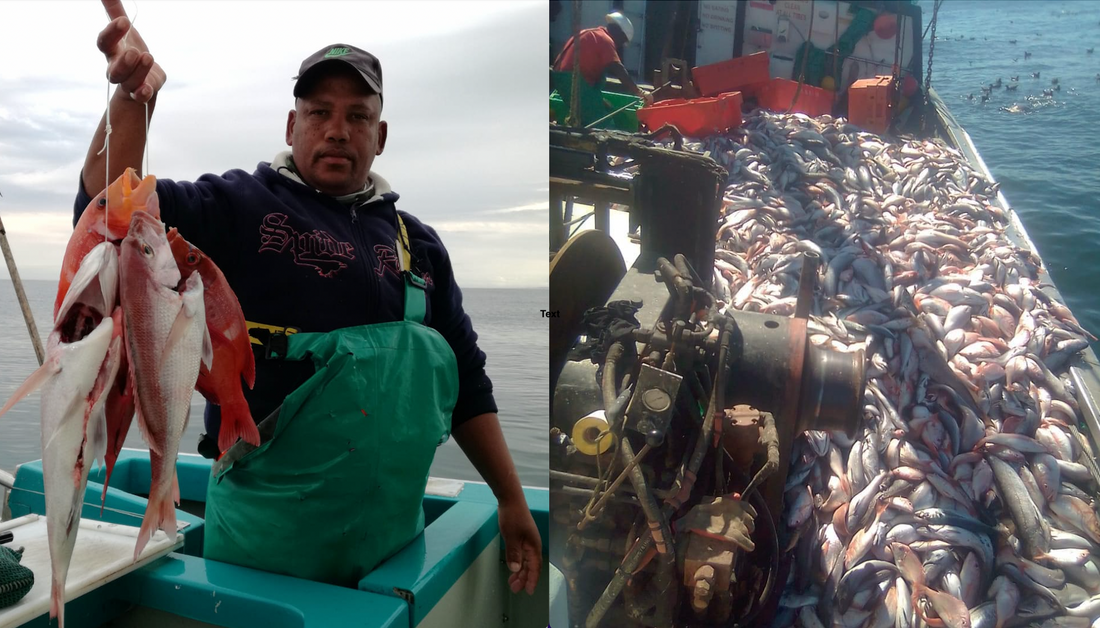
Small Scale Vs Industrial Fishing Methods & Why they are not Equal.
Share
Small Scale Vs Industrial Fishing Methods & Why they are not Equal.
A sustainable fishery in Cape Town is one that continues to produce food into the future at an undiminished rate. There is a maximum sustainable yield on fish stocks, and we should be restricting fishing to below these levels to have balance for the future.
There are many fisheries that fall into this category, especially those where the catch method is by one hook and one line, catching a single fish at a time. Small scale fishermen take out a percentage of a school of fish, allowing the others to go on and breed for the following years. A typical catch is a couple hundred kilograms for a day, with an exceptional catch up to 2 tons for the day.
In comparison, large industrial methods take out entire schools of fish and anything else that may be in the way (dolphins, turtles, seals etc…), decimating the school and eliminating any future breeding potential.
A single industrial purse seine fishing vessel catches an average of 20 - 50 tons per set and potentially up to 200 tons per set twice a day.
That is more fish in a single day than a ski boat/ small scale fishing boat catches in South Africa in a whole year. These fishing styles are greatly different should not be lumped together and painted with the same brush as they have vastly different impacts on the ocean.
Responsible one-by-one fishing methods including pole-and-line, rod-and-line, hand line and trolling have:
- No habitat or sea bed damage
- No ghost fishing gear
- No by-catch
- Each hook and line is consistently manned by the fisherman
- Does not lead to overfishing of a fishery as this is a very low intensity method
- More Jobs are created per ton of fish harvested - very labour rich practices
- Quality improvement as each fish is handled as an individual
- Catch is highly selective and only the targeted species is caught
- Cultural importance in coastal communities is retained
- Local ownership and typically these small-scale fishermen support local businesses and generating local and community wealth
If you really want to positively influence the sustainability of the oceans, rather than giving up seafood altogether, ask this all important question: How was this fish caught, where and by whom?
Support pole and line, rod and line and hand line that support local communities. Use your consumer power to start the change.
At the end of they day our choices do make a difference, and we can all do our bit daily to help our beautiful planet.
